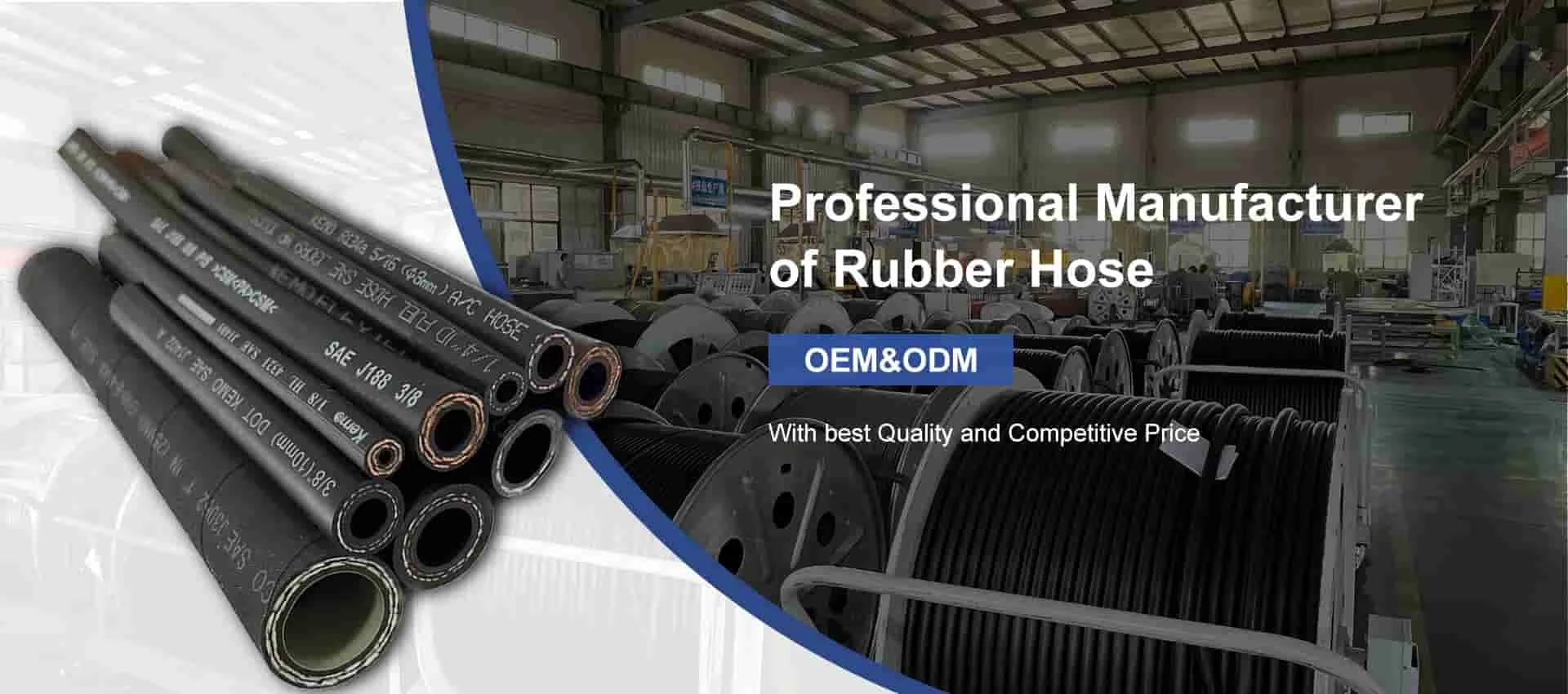Exploring the Benefits and Features of E85 Compatible Hose Types
Ноя . 09, 2024 10:15 Back to list
Exploring the Benefits and Features of E85 Compatible Hose Types
Understanding E85 Hose A Vital Component for Ethanol-Fueled Vehicles
In recent years, the automotive industry has seen a significant shift towards alternative fuels, with ethanol becoming a popular option. E85, a blend of 85% ethanol and 15% gasoline, has gained traction due to its potential to reduce greenhouse gas emissions and reliance on fossil fuels. However, incorporating this fuel into vehicles requires specific adaptations, one of which is the use of specialized E85 hoses designed to handle the unique properties of ethanol.
What is E85?
E85 is a high-level ethanol fuel blend used primarily in flex-fuel vehicles (FFVs). These vehicles are engineered to run on any combination of ethanol and gasoline, providing flexibility to the user. The primary advantage of E85 is its ability to produce more power compared to regular gasoline due to ethanol's higher octane rating. Additionally, using E85 can lead to a significant reduction in carbon emissions, promoting a more sustainable approach to transportation.
The Importance of E85 Hoses
The transition to E85 fuel presents challenges, particularly concerning fuel delivery systems. Standard hoses used in conventional vehicles are typically designed to handle gasoline, which has different properties compared to ethanol. Ethanol can be more corrosive, absorb moisture, and have a different thermal expansion rate. As a result, the hoses must be able to withstand these conditions to ensure the automobile operates safely and effectively.
E85 hoses are specifically engineered to cope with the harsh environment created by ethanol fuels. They are often made from materials such as fluoropolymer or specially formulated rubber that resist chemical degradation. This resistance is crucial, as failure to utilize appropriate hoses can lead to leaks, fuel contamination, and potential engine damage.
Key Features of E85 Hoses
1. Chemical Resistance E85 hoses are constructed using materials that provide high resistance to ethanol's corrosive effects. This helps ensure that the hoses do not break down over time, maintaining their integrity and functionality.
e85 hose

2. Durability Given the potential exposure to varying temperatures and pressures, E85 hoses are designed to withstand these conditions without failing. High-quality E85 hoses can endure extreme temperatures, ensuring that fuel delivery remains consistent.
3. Moisture Absorption Ethanol blends can absorb moisture from the environment, leading to potential issues such as phase separation. E85 hoses are designed to minimize the absorption of water, helping maintain fuel quality and performance.
4. Compatibility with Compression Fittings Many E85 hoses feature specialized fittings that are compatible with the high pressures found in fuel systems, ensuring a secure and leak-free connection.
Installation and Maintenance Considerations
When installing E85 hoses, it is crucial to follow manufacturer guidelines to ensure compatibility and safety. Regular inspections of the hoses should be conducted to check for signs of wear or damage. Any discoloration, cracking, or softening may indicate that a replacement is necessary, as aged hoses can lead to fuel leaks and performance issues.
It is also vital to ensure that all other components in the fuel system, such as fuel pumps and injectors, are compatible with E85. Using a combination of E85 hoses and compatible components helps ensure a seamless operation and maximizes the benefits of using ethanol fuel.
Conclusion
As the automotive landscape continues to evolve towards greener solutions, understanding components like E85 hoses becomes increasingly important for vehicle owners and manufacturers alike. By opting for the right hoses, consumers can enjoy the many advantages provided by E85, including enhanced performance and reduced environmental impact. Ensuring that vehicles are equipped with the appropriate components is key to making the most of alternative fuels and contributing to a sustainable future in transportation.
